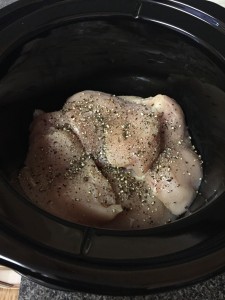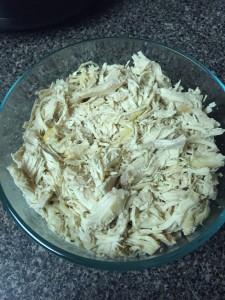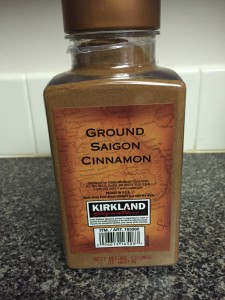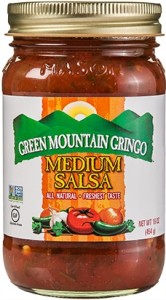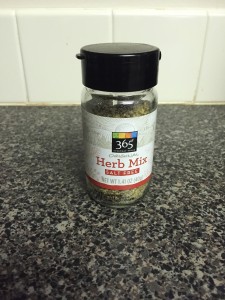While tracking one’s intake, on occasion, can be a useful tool in terms of troubleshooting the diet as it relates to hormonal balance, fat loss results, performance and also, accountability, I am generally NOT a fan. But there is a difference, I think, between tracking macros and logging your eats in a more general sense (i.e. writing down what you eat and when, in household measures, and how ‘it’ makes you feel). The latter can be particularly fact-finding and plays an integral role in the health/wellness journey for many people.
If you are team IIFYM, flexible dieting, whatever. No judgement, whatsoever. In fact, I’d love to hear from you! #doyou
But for me, I have neither the time nor energy (or care, if we’re being honest) to track every last morsel of food that I CHOOSE to put in my mouth. I’m not someone who craves much variety nutritionally, and prefer to fuel with real, whole foods most of the time. And I know that if I can keep it tight 80-90% tight always, I’m good. The remaining 10-20%? My zero stress wiggle room. It’s built right in!
In my work with clients, who’ve come to me with a desire to learn about this more moderate approach, a way of living, eating, exercise that they can do… forever, I encourage the practice not of counting cals/macros, rather MINDFULNESS. That is, listening to the body’s biofeedback signals. When these things are balanced, hormones are balanced and when hormones are balanced, the calories take care of themselves. This is because the hormones dictate how calories are partitioned (i.e. whether calories go toward fat storage, or muscle repair/growth). And yes, this means you could be under (or over) what an app/calculator tells you you need, but so long as HEC is balanced and you’re getting fat loss results (either attain or maintain), you’re good. Trust this; it’s science!
Mindfulness also includes things like eyeballing portions instead of measuring them (once you’ve learned what a serving looks like, of course, which can be especially important for trigger foods and may be something you choose to avoid entirely e.g. nut butters- I mean, how easy is it to grab a spoonful without even realizing you have a half cup on there? ha totally been there)
Don’t forget: In terms of our nutrition, it’s not about eating less and exercising more; rather, eating more of the right things more often to balance energy, stave off hunger, keep cravings at bay and actually burn fat. How? This nutritional approach creates a hormonal environment that promotes the burning, not storing of fat. It does NOT mean we are burning fat 24/7- that is neither realistic, nor healthy. So what does this look like? Plenty of non-starchy veggies, protein and healthy fats; also, enough for YOU carb according to timing, type and amount per your metabolic tendencies and unique to you carb tipping point.
This approach is different than what many people are used to, but different is not bad; it’s just different.
Here’s the thing with tracking: whether we realize it or not, tracking will, over time, drain us of the mental energy that could be directed toward more productive use i.e. making the choices and take the actions we know we should be making/taking.
> Bottom line: Track if you want, but be careful to not *let it* consume you. Remember, the goal is to offload the cortisol, not create additional stress. If/when tracking becomes a stress, you’ll begin to resent it and eventually, be less likely to actually do it. And you’ve heard me say it before but if we’re living in a way that we cannot sustain, we cannot expect sustainable results to match.
We want easy, we want effortless and tracking is just that. It’s the 1.0 version: numbers in, numbers out. Unforch, it’s not that simple. If you want sustainable results, you’ve got to put in the work. There’s no way around it. Put on your detective hat a la Sherlock Homes and figure out what works best, for YOU. Easy, my friends, is earned. Cool thing is, it’s really empowering to be able to create your unique to you plan that takes into account, well, you. <== This is the 2.0 version.
So, how to go from balls-out tracking to a more moderate approach?
- Practice not tracking; if that’s too big a first step and you’re tracking daily, maybe you track every other day, then only a few times a week, then only a single day until you’re comfortable not tracking at all
- Practice not weighing, measuring food; instead, listening to your body #selftrust (*hint: the body is really good at telling you what it needs; it becomes your job, then, to listen)
- Practice, instead of tracking cals/macros, keeping a log of what you eat. Include things like time of day, food type and approx. amount, how you are feeling before/after e.g. hunger, energy, cravings (HEC a la Metabolic Effect) high or low; also, stress, mood, sleep, skin, digestion.
- In need of some more guidance? Join our exclusive community, where we discuss all of these things on the reg and more! And, you get daily direct access to me for questions, feedback, support and accountability. All the deets HERE.
When it comes to tracking, yay or nay? For those of you who’ve broken free from the tracking trap, how’d you do it? Let me know what you think on my Facebook page, or tag me on Instagram @emilynminer to show me how you “do” moderation! Interested to hear any/all perspectives, even if your views differ from my own. Let’s just please keep it respectful. TIA. 🙂
